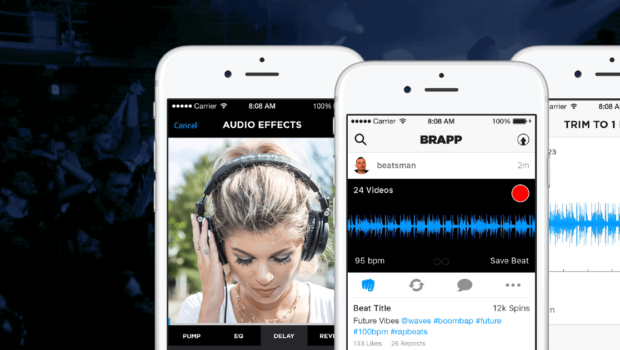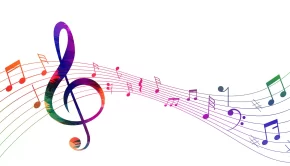Special Guest Post: Breaking down barriers: ‘How technology changes the culture of music’
Words by Niki Mukhi
Niki Mukhi is the CEO and co-founder of Brapp, a social music platform that is changing the way artists and music lovers connect around the world
Technology has always been a driving force evolving how music is created and distributed. The last 20 years is no exception to this, where the rapid innovations in technology have sprouted a number of revolutions in music creation, such as the home studio, and distribution, from Napster to iTunes to Spotify.
The Internet has the power to distribute music evenly worldwide but, sadly, the licensing systems that concern music across different territories have not been able to keep up with these technological advances. This has led to the hyper-fragmentation of the music industry. Platforms such as Spotify and Apple Music, have simplified access to music faster than countries and the music industry have changed their licensing laws. Fans now find themselves facing problems as their access to music depends on which country they find themselves in. This means that music – one of humanity’s universal languages – is prevented from being distributed in different geographical locations via complex legal channels. But can technology be used to overcome these same barriers? And where does it go from here?
Geography and music distribution
Twenty years ago, when the main mediums for distributing music still included CDs, tapes and vinyl, recording groups would establish companies that were local to individual ‘distribution territories’ – i.e. countries – to physically market their musical products. However, with the digitization of the music industry, these local entities have faded from the industry and music distribution is no longer as clear cut as it once was.
In 2014, 46% of the international recording industry, worth $6.9 billion, came from digital channels. Despite the fact that digital music channels have been consistently gaining ground on traditional distribution methods, major music platforms – such as Apple Music and Spotify – find they are limited to what songs they can play, and where. Different licensing agreements and legal requirements across international borders prevent music lovers from listening to the music they want to listen to.
When these apps launched, they had the ability to deliver products across different territories, but did not possess the licences to do so. As such, tracks that are available in countries like the U.K and the United States are not as easily accessible in other countries, such as the United Arab Emirates. To counter this, musicians and fans are increasingly turning to more peer-to-peer sharing platforms (where available), such as SoundCloud and, of course, YouTube, to share their music.
Connecting with fans
Peer-to-peer platforms are not limited to simply navigating licensing issues and helping artists to share their music across international borders. These platforms also provide a means for artists and fans to communicate more directly. YouTube and SoundCloud enable artists to reach potential fans regardless of where they are to achieve much greater potential exposure for their music. With the bulk of an artist’s earnings now coming from live performances, musicians need to drive demand as far and wide as possible. Platforms like these help them to get their music directly to the ears of fans around the world which drives demand for performance.
SoundCloud is a platform that can help artists distribute their work and it has seen tremendous growth in recent years. The platform currently boasts some 250 million users worldwide and, between them, they upload 12 hours of audio every minute. These figures utterly eclipse those of Apple Music and Spotify, who collectively have around 115 million users. As well as allowing artists to share tracks across the globe, SoundCloud also provides a platform that fosters new talent and relationships between musicians and listeners, helping them to build greater and more secure fan bases than ever before.
Social networks provide the means for artists to communicate other elements of their lives with their fans, encouraging fans to stay more involved with their musical releases.
This reinforces fan relationships, as artists connect with their followers all over the world, via non-musical mediums.
As an example, hip hop act Foreign Beggars show how musicians can achieve success and renown by taking their music and content to platforms built with creating and sharing in mind. The band has managed to cultivate a subscription base to their YouTube channel of almost 53,000, and have clocked up a total of 17.5 million views since 2009. This has resulted in a rigorous touring schedule from the United States to New Zealand, hitting almost everything in between.
The future is peer-to-peer
With the sort of growth exhibited by SoundCloud, and the continual popularity of YouTube, it is clear that the future of music distribution will center on peer-to-peer sharing and connecting. Facilitated by closer relationships between artists and their fans, music will become more shareable as everyone involved in the music industry communicates and collaborates to share music and musical influences across international borders.
However, legal issues could remain difficult to overcome, at least for a while. In a now infamous case, music sharing platform Grooveshark was sued out of existence in a case brought by record companies such as Universal Music, Sony Music and Warner Music. While entry level musicians may be able to share their music via platforms such as SoundCloud, there is potential that these tracks would have to be removed if they were signed by a label later on.
Technology isn’t just tackling international borders, either. In the last 20 years or so, we have seen how the hip hop culture of collaboration has spread across all music. Duets between pop stars are commonplace, as are tracks put together by teams of rock and rap stars – think back to Aerosmith and Run DMC’s Walk This Way. Genres as we know them are evolving as collaborations become increasingly commonplace. Technology is enabling this to go a step further by bringing artists in different corners of the world together. An international music community based on sharing and discussing their favorite tunes, rather than just picking up CDs in record shops, or downloading tracks in isolation, results in a type of musical osmosis. As always, technology is driving change in music – long may it continue to do so.
Tweet








































